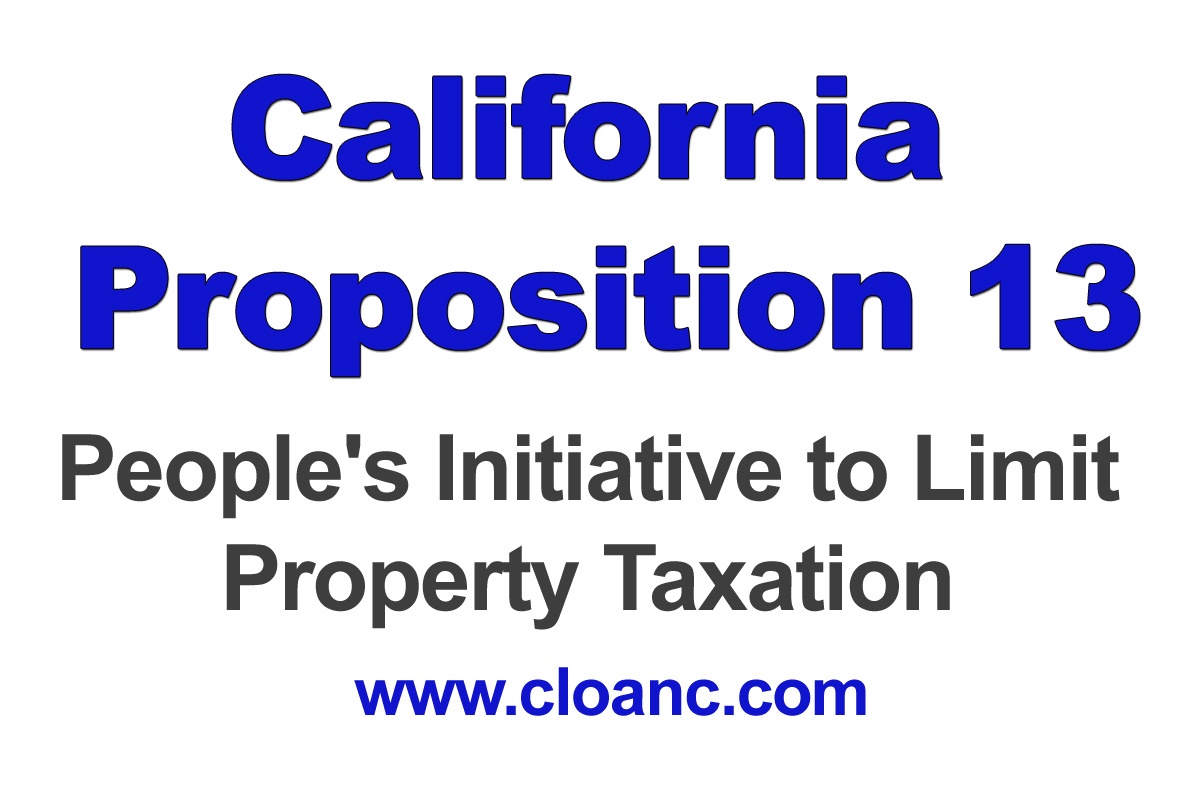Trust Loans, Probate Loans and Estate Loans
At Commercial Loan Corporation we specialize in providing our clients with trust loans and estate loans. These trust loans are mortgages on real estate in a trust that provide liquidity to an otherwise illiquid trust at the time of distribution. This allows our clients to utilize Proposition 58 or Proposition 193 to transfer the property from a parent to child or grandparent to grandchild to avoid a property tax reassessment and maintain the existing low Proposition 13 protected tax rate. The following trust loan blog article provides information on California Proposition 13, Proposition 58, Proposition 193 and how Commercial Loan Corporation can assist you. For additional information or to begin the process of receiving a loan for your trust, please call us at 877-464-1066 or complete the trust loan information request form located here.
Proposition 13
Proposition 13 was passed by California voters on June 6, 1978. Property values were escalating in the 1970’s due to inflation. Property taxes were going through the roof because people were re-assessed annually at current market values. Proposition 13 froze property tax rates at 1976 levels and limited the increase in tax rates to 2% per year. Once a property was sold, the new tax rate was established at approximately 1% of the sales price and could go up no more than 2% per year.
Proposition 58 (and 193)
Proposition 58 became effective on November 6, 1986. It is a constitutional amendment approved by California voters which excludes from reassessment transfers of real property between parents and children.
Proposition 193 became effective on March 27, 1986. It is a constitutional amendment approved by California voters which excludes from reassessment transfers of real property from grandparents to grandchildren, providing that all the parents of the grandchildren who qualify as children of grandparents are deceased as of the date of transfer.
Why is this important?
Prop 58 and Prop 193 allows a child receiving a property from a parent (or grandparent) to avoid property tax reassessment. The child receiving the property will preserve the Prop 13 tax rate paid by their parents (or grandparents). The property tax savings for the child receiving the transfer of real property can be significant. Let’s say Mom and Dad has owned the family house for 20 years. If the parents bought the property for $200,000, their property taxes would probably be $2,900. That property could be worth $700,000 today. The property taxes would probably be $7,000. The difference is $4,100 per year.
What if the property being transferred is in a trust?
It doesn’t really matter that a property is in a trust. The transfer from a parent to a child will be viewed that same as a property not in a trust. The tricky part is when both parents have passed and there is more than one child (beneficiary). If the trust has assets other than the real property being transferred and those assets can be split among the other beneficiaries so that everyone gets an equal share; the child (beneficiary) taking the real property can probably qualify for the parent-child transfer exclusion afforded by proposition 58.
In the event that there are not enough other assets in the trust to equally divide the trust assets among the beneficiaries, the trust will need to borrow money so that there are enough assets to distribute equally to all the beneficiaries. This is called a 3rd party trust loan. This is where Commercial Loan Corporation comes in. CLC is a California Trust Loan provider and CLC loans help preserve a low property tax rate when taking a property out of a trust.
Even though the child beneficiary taking the real property may have enough cash to lend to the trust so an even distribution can be accomplished, it is viewed as a buyout of the other beneficiaries and the real property will probably be assessed at the current sale price. The trust is required to borrow from a 3rd party in this situation.
Pro Rata Distribution versus Non Pro Rata Distribution
A pro rata distribution of an estate is when each heir receives an equal portion of each asset in the estate. A non pro rata distribution of an estate is when each heir receives an equal proportion of the entire estate but not necessarily of each asset.
$1 million exclusion limit
There is no limit on the transfer of a personal residence.
There is a $1 million dollar limit for all other real property. This is based on the assessor’s value of the other properties as opposed to current market value. A parent may have used part of this exclusion in the past. The State Board of Equalization keeps track in a state-wide database. This can be checked by writing to:
State Board of Equalization
County Assessed Properties Division, MIC: 64
P.O. Box 942879
Sacramento, CA 94279-0064
For additional information on trust loans, probate loans and estate loans or to begin the process of receiving a loan , please call us at 877-464-1066 or complete the trust loan information request form located here.



